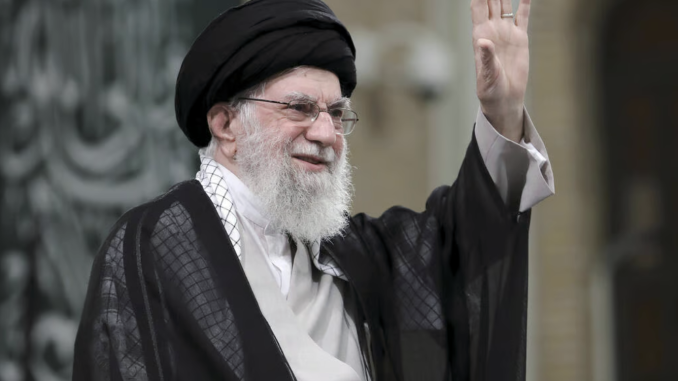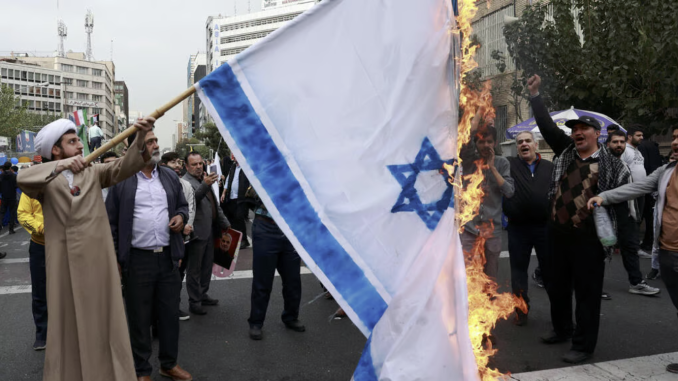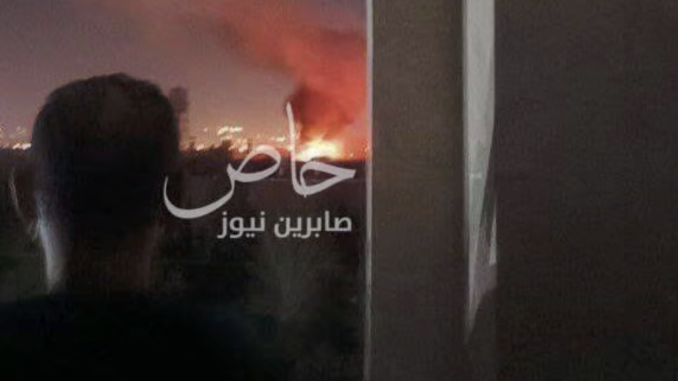Opinion: Supreme leader has set 2040 as target for final destruction of Israel, necessitating a change in strategy that transitions from defensive to offensive action using the IDF’s intelligence and operational capabilities, U.S. support and regional alliances
Jacob Nagel, Mark Dubowitz | YNET |

There is a clock in Palestine Square in Tehran that counts down to 2040, the year Supreme Leader Ali Khamenei has identified as the end of the state of Israel. And when Khamenei declares that his plan is to destroy the Israel by then, you should believe that he intends to do everything in order to succeed in this ambition, with the help of supporters inside and outside Iran. He should be taken very seriously.
And if that is the Supreme Leader’s objective, Israel cannot afford to make do with deterrence as its goal. The strategy must completely change and transition from defense to an initiated attack. Israel’s mission must be to end Khamenei’s regime long before 2030.

Iranians burn an Israeli flage in a Tehran protest (Photo: Vahid Salemi / AP)
Allowing Iran to continue to dictate the pace and force of the conflict is not a recipe for victory. Survival is not the right strategy for Israel in the face of the Iranian threat and a defensive posture could lead to inevitable weakening. Israel must not continue to focus on surviving Khamenei’s threats. It must act early to neutralize their source.
The recent military successes against Hezbollah and Hamas, and the destruction of Iran’s central air defenses, proves that the IDF is able to overcome a such a sophisticated adversary, using precise intelligence, advanced technology and impressive aerial operations. This expertise can be aligned with a multi-faceted strategy that is focused on Iran’s nuclear sites.

Israeli strike on military targets in Iran in October
With the election of Donald Trump as president, a joint Israeli-American operation is not inconceivable and would significantly increase the chances of success, by combining Israel’s operational precision and technological systems with American firepower and special forces, along with diplomatic cover.
Such initiated action, disruption of command systems and covert operation to sabotage critical components of Iran’s nuclear program, could be the pillars of this effort and a clear international message of support, critical for global stability, could bolster their legitimacy.
Economic warfare remains one of the most powerful tools against Iran. Past sanctions as part of the maximum pressure campaign shattered Iran’s income from oil and limited its ability to fund its terror network. Israel must work with the United States to reinstate and increase the sanctions and focus not only on Iran’s nuclear program but also on the Iranian Revolutionary Guard Corps (IRGC) – the main proponent of terrorism and oppression.
The diplomatic efforts must focus on strengthening existing alliances with the Arab world, signing a peace agreement with Saudi Arabia and building new coalitions. The Iranian aggression, especially supported by Russia, and the continued threats towards American allies in the Gulf, created new opportunities to forge coalitions against Iran. These must act not only to deter the Iranians but mostly to weaken the regime and bring it to its end.
Israel’s intelligence and covert operational capabilities are an additional pillar of this strategy. The disruption of Iran’s nuclear timeline, attacks on its nuclear scientists and on the leadership of the IRGC, using Israel’s cyber warfare must intensify and focus on critical weaknesses of the regime.
Finally, Israel must increase its support of the people of Iran, the main victims of the brutal regime, by bolstering internal opposition forces through communication platforms, arms and usable intelligence. This doctrine must rely on creating protests that would accelerate the downfall of the regime.



Leave a Reply
You must be logged in to post a comment.